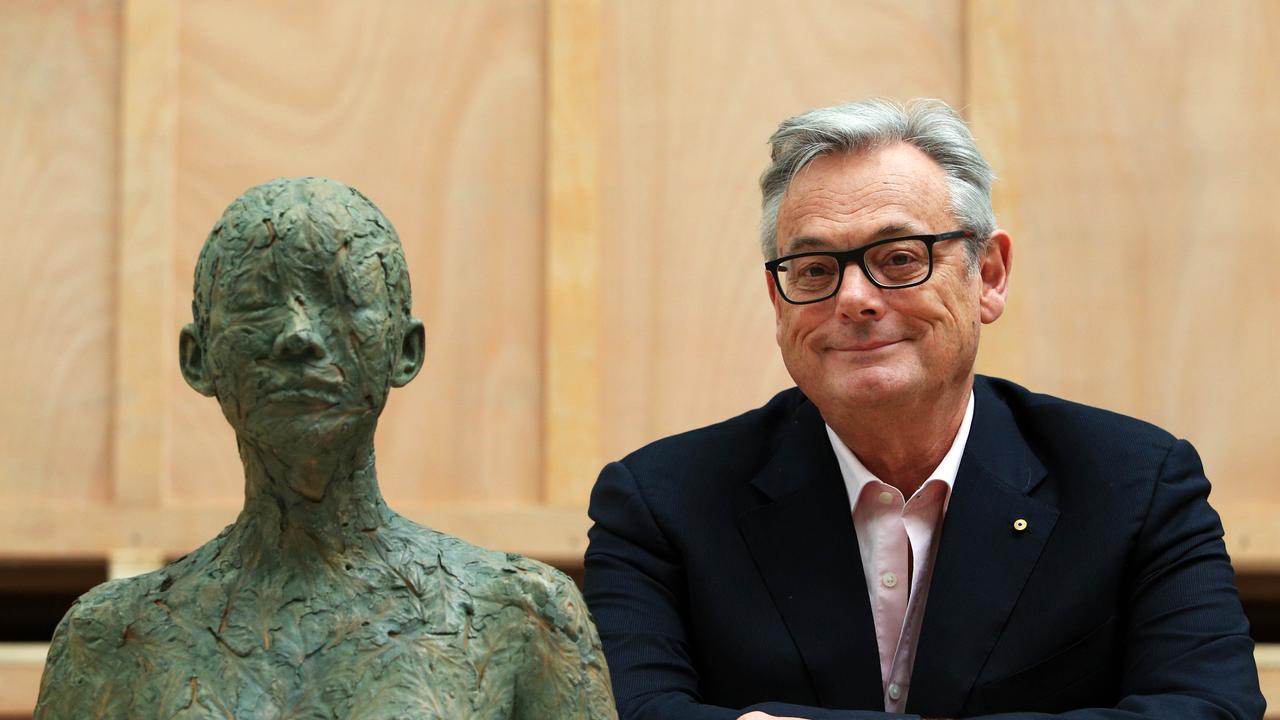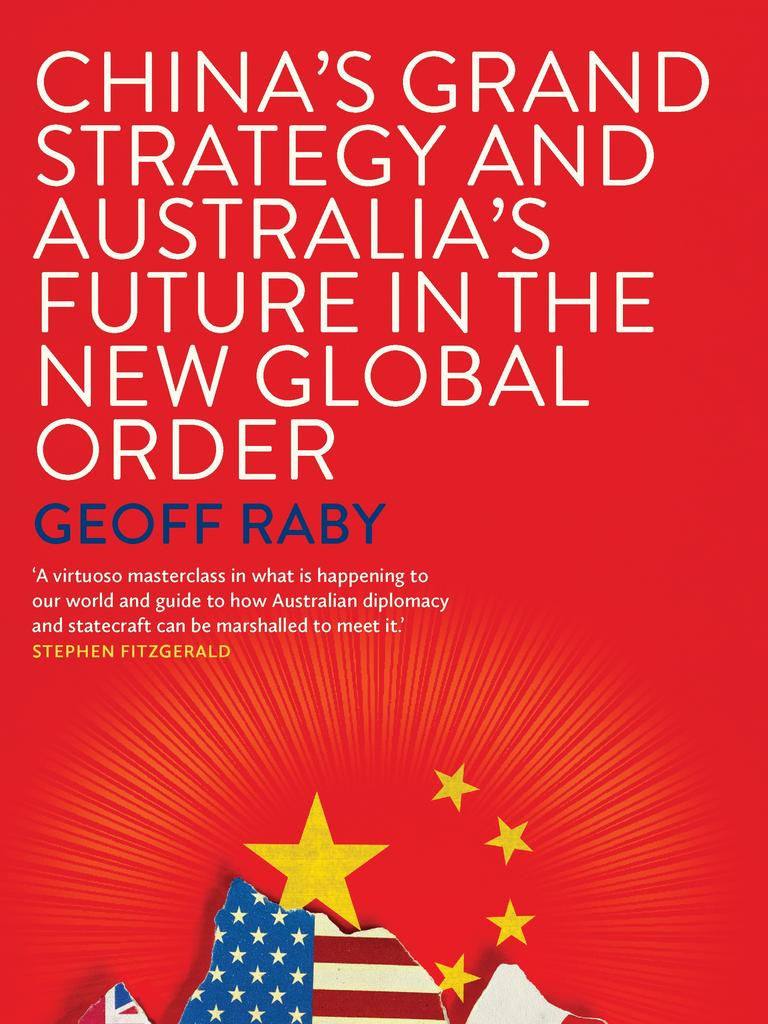想象一下,澳洲力挺的主导世界强国正在出现一个失败国家的特征,它在全世界有最高的新冠死亡人数,有一个倒塌的卫生体系和缺乏医疗设备。那里穷人死得比富人快。那里的黑人下层社会抗议白人警方非法谋杀导致很多城市每晚被焚烧。
再想象一下,一个不断上升的大国成功走出危机,它的企业复工,并且利用危机寻求战略优势,进一步将边缘的领域纳入中央控制。这个崛起的强国价值观与这个主导国及其盟友不同。它把人权这些问题认为是复兴路上次要的事情。虽然它缺乏法治,并且把强大的科技用来监视其公民和审查,它占了全球五分之一人口的人基本上支持这个系统或者快乐地默认了它。
想象一下这个崛起的强国现在感到足够强壮可以忍受国际批评,肯定有能力不理睬主导强国的盟友的挑战。并且它知道它可以与主导强国签协议而不用理睬这些生气的盟友。这个崛起的强国也可能感到为了自身利益,会永远支持这给主导强国来从公共物中获利,特别是地区安全,这个是有强国以巨大代价提供的。想象澳洲政策制定人在这个反乌托邦世界里会怎么做。
在这个风险和不确定性越来越多的世界里,澳洲对中国的外交政策被武器化。当澳洲情报、安全和军事机构控制了澳洲对中国的外交政策时,正常的国内政策讨论越来越被描述成是不是符合国家利益还有是不是支持或者破坏澳洲安全。支持改善与中国关系的企业被批评是把个人贪婪放在国家安全之上。因此,澳洲与中国维持良好关系带来的巨大经历利益丧失合法性。争取要澳洲对华外交政策更平衡的议员被攻击成是不爱国的。一名高级政府参议员说: “我们的工党愿意成为中共统治的辩护者或者傀儡。” 反对党在中国问题上进退两难,已经被迫沉默了。
中国在澳洲境内和地区邻国的坏行为加强了大家的决心,要打造强有力的叙述,说在每个方面都要抵制中国。与中国建立良好关系对于澳洲来说是有价值的这个说法曾经是不假思索就能回答的,这个说法不是最终状态,但这是促进澳洲国家利益所必需的,包括但不限于经济利益。现在已经不是这样了,即使锋刃派现实主义要提倡与中国合作的论点也被反驳成是一种新型的绥靖主义。但从来没有人解释为什么主要的美国武器制造商出资澳洲战略政策研究所是合法的但澳洲资源公司就不能支持”中国事务”智库,前者是中国”威胁“的主要倡导者,而后者提倡在澳洲对中国要进行有依据的讨论。
正如基廷说的那样,澳洲需要找出它的方法明白它长远利益,然后保持一个有条不紊和一致的外交政策,是基于澳洲在这个地区里的安全发现,不管是定义成东亚还是印太地区。
澳洲有充足的软实力,需要向世界展示它的吸引力。它的资源有一些战略性优势,但铁矿是全球其中一个最丰富的矿产,中国最终会因为安全原因从澳洲分散投资,而中国的钢铁密集型增长一段时间后会下降。澳洲的巨大吸引力在于一个成功和开明的多元文化社区,可以吸引学生和游客—但这些人正在准备离去。澳洲需要通过加强文化外交计划来展示这个,与此同时要避免造成不和和种族歧视的关于安全和外交政策的公开讨论。它需要强调个人权利和自由,避免身份认同政治,它会提升小部分人利益,不顾个人以至整个社会利益。但澳洲人需要对他们体制优势有信心—法治、司法独立、安全机构对国会的责任和媒体独立。澳洲在新秩序里面临来自所有强国的威胁,可能没有比中国的严重,但它也有坚韧的一面可以抵制和克服。澳洲领导人需要通过体制优势在群众中建立信心而不是传播恐惧。
Imagine a world in which the dominant power, with which Australia has firmly aligned itself, is displaying characteristics of a failed state, with the highest absolute number of deaths in the world, a collapsing health system and insufficient supplies of medical equipment. Where the poor are dying at faster rates than the rich. And where cities are being torched nightly as the black underclass protests extrajudicial murder by white police officers.
Imagine, too, that the ascendant power has been able to manage its way through the crisis, that its businesses are returning to work, that it is using the crisis to seek strategic advantage and further submit its peripheral areas to its central control. This ascendant power does not share the values of the dominant power and its allies. It views such things as human rights as second-order considerations on the road to a great national rejuvenation. And despite its lack of the rule of law and its technological prowess being directed in part to the surveillance of its citizens and censorship, its population, which accounts for one-fifth of humanity, by and large supports the system or acquiesces happily enough.
Imagine that the ascendant power now feels strong enough to be impervious to international criticism, certainly able to brush off challenges from the dominant power’s allies. And that it knows it can cut deals with the dominant power regardless of these irritating allies. The ascendant power may also feel it is in its interests to keep propping up the dominant power for an indefinite time to benefit from the public goods, especially regional security, that are provided by that power at great expense. Imagine what Australia’s policymakers might do in this -dystopian world.
In this world of heightened risks and uncertainty, Australian foreign policy has become weaponised with respect to China. As Australia’s intelligence, security and military establishment has taken control of Australia’s foreign policy towards China, legitimate domestic policy discussion is cast increasingly in terms of being for or against the national interest and supporting or undermining Australia’s security. Business proponents of improved bilateral relations with China are criticised as putting personal greed above national security. In this way, the huge economic interests Australia has in maintaining good relations with China are delegitimised. Politicians who argue for greater balance in Australia’s policies towards China are attacked as somehow being unpatriotic. A senior government senator has said, “We have Labor people willing to be basically apologists or ventriloquist dolls for the communist regime in China.” The Opposition has become so wedged over China that it has been silenced.
China’s bad behaviours, both within Australia and towards its regional neighbours, have reinforced each other to create a powerful narrative that China must be resisted at every turn. It was once a no-brainer that good relations with China were valuable for Australia — not as an end in itself, but as necessary to advance Australia’s national interests, including but not limited to economic interests. This is no longer the case, and even hard-edged realist arguments for engagement with China are now dismissed as a new form of appeasement. It has never been explained why it is legitimate for major US arms manufacturers to fund the Australian Strategic Policy Institute, which is a leading proponent of the China “threat’, but not for Australian resource companies to support China ¬Matters, which seeks to promote informed discussion of China within Australia.
Australia needs to find its way to a shared understanding of its long-term interests and from that maintain a disciplined and consistent foreign policy that is premised on Australia finding security in its region — be it defined as East Asia or the Indo-Pacific — and not from the region, as Paul Keating has said.
Australia has an abundance of soft power and needs to show its attractiveness to the world. It has some strategic weight with resources, but iron ore is one of the most plentiful minerals on earth and China will eventually diversify away from Australia for security reasons, if nothing else, while China’s steel-intensive growth will fall over time. Australia’s great attractiveness lies in a successful and open multicultural society that draws in students and tourists — people voting with their feet. Australia needs to project this to the world through ramped-up ¬cultural diplomacy programs, at the same time avoiding divisive and racially tinged public discussion of security and foreign policy. It needs to emphasise individual rights and freedoms, and avoid identity politics that elevate subgroup interests above those of the individual and hence the community at large. Above all, Australians need to be confident in the strength of their institutions — the rule of law, independence of the judiciary, accountability of security agencies to parliament, and independence of the media. Australia faces threats from all major powers in the new order, perhaps none more so than China, but it also has the resilience to resist and overcome. Political leaders in Australia should be building confidence among the public in the country’s institutional strengths, not spreading fear.



作者是前澳洲驻华大使芮捷锐
https://www.theaustralian.com.au ... 806a661ec2dbae4a99e
评论
现状
评论
这个前大使看来家里盖房少砖头,
在整个西方世界急速向右转的大背景下,
对华友好的声音很需要勇气。
评论
最终什么意思?
评论
两边儿的媒体都在选择性宣传偏激的信息,主流声音没有渠道,大家自然越行越远。
评论
这个不仅仅是“对华友好”了,感觉直接是“对华示好”了。冒(欧美)天下之大不韪啊。
选边站真是下策,无论选中国还是美国。希望澳洲能够奉行竹子外交,根基深厚,上头随风摆,这才真正符合澳洲本国的利益。
评论
这文章 这作者 没有澳洲价值
评论
好文章
评论
难得有些不一样的声音
评论
不错,支持一个,难得的有这么清醒头脑敢说的
评论
最好继续怼中国,怼到经济崩溃,澳元崩溃。
中国与美国对抗,为了震慑其美国的小弟,必然会拿其中一个开刀。欧盟搞不动,澳洲正好,澳洲对中国的依赖远大于中国对澳洲的依赖,搞起来不伤自身。澳洲已被中国选为对象了,还傻不拉几在明面上怼中国,又给了中国开刀的借口。好戏继续
评论
揉眼睛,不敢相信。
这还是莫老板的报纸么???
难道最近风向变了。。。
评论
主要还是对中国缺乏耐心,想着民主明天就会到来中国,结果等不耐烦了,直接翻台。 以前说中国穷,现在中国富了,以前说中国落后,现在科技发达了, 我还是有信心中国有一天会比那些西方国家更民主的.
至于澳洲,如果还是靠天吃饭,就那些大部头的民主理论的书都指出了,最后会自己把民主法制给灭掉的。
评论
因为美国大选之后可能情况会恶化
kiwi的外交部都警告在美kiwi了
The Ministry of Foreign Affairs and Trade has issued a warning to New Zealanders in the United States to avoid areas where "political rallies or protest may occur" in the run up to next week's Presidential Election.
评论
话说那些木板封门的商店,还有选举前后雇警察兼职当保安的有钱人,他们是在担心谁来打砸抢呢?
BLM VS MAGA?



评论
苏联也是外表看上去强大完美,结果内里都空了,一击即溃
评论
对于未来,我还是看好澳洲,这次疫情太成功了,本身优越的国土面积气候环境,民主法制社会,少量人口也许会成为新的诺亚方舟,澳洲已成为美国人最想移民的国家,只要这些,必成为权贵们保命注资的理由,包括中国的权贵们。中国,有太多不安定的因素在,回归计划经济被剥削的人们是否会反抗,党内各派激烈斗争,这些不安定因素都有可能会造成经济倒退,比如大清闭关锁国,中国内战,文革,苏联解体,经济都是停止不前的。所以,如果澳洲一定要站边,现在站大多数西方国家是没错的,毕竟没有中国,90年代前澳洲也好好的。当然中立最好了,其实最近感觉已经不再像以前打狗血般抗议中国了。
评论
最近没怼得那么厉害,估计:
第一,符合价值观的疫苗前景不明,心头有大石;
第二,领导人是骑墙派,自然要看大哥眉头眼额。最近收声不是煤矿龙虾卖不出苦苍生之苦,而是美国那边形势不明朗。
评论
虽然是难得的不同声音但始终有点夹枪带棒的私货。考虑中国问题始终不能忽略的一个基本事实是人口,十四亿人的巨大生存发展压力是中国政府必须要面对和解决的问题。正好有另外一个人口大国印度走着另外一条道路,可以用来比较。
当澳洲政府大谈制度竞争和发展模式的时候,也是故意忽略人口基数这个基本事实,之前可以把人均指数上的优势用来夸大成制度上的优势,现在这个优势也渐渐丧失以后,只剩下吹捧价值观来维持民众信心,掩盖发展模式的失败维持其统治。
评论
澳洲就是个弃婴,长大后一直想证明自己的血统纯正,所以,骨子里死硬死硬的,是需要变通一下。
评论
和两个月前theaustralian关于中国的文章是相反的论调
评论
允许多种声音是必要的,提醒你一种声音背后的危险。
评论
当澳洲情报、安全和军事机构控制了澳洲对中国的外交政策时,正常的国内政策讨论越来越被描述成是不是符合国家利益还有是不是支持或者破坏澳洲安全。支持改善与中国关系的企业被批评是把个人贪婪放在国家安全之上。因此,澳洲与中国维持良好关系带来的巨大经历利益丧失合法性。争取要澳洲对华外交政策更平衡的议员被攻击成是不爱国的。一名高级政府参议员说: “我们的工党愿意成为中共统治的辩护者或者傀儡。” 反对党在中国问题上进退两难,已经被迫沉默了。
今天视频在中国的我家老人担心澳洲这样一条路走到黑……
评论
注册代理人了吗
评论
绥靖就是死路一条
评论
感谢分享!
评论
评论
一切牛鬼蛇蝎,只要反华反共,民主口号掩饰一下,成为西方的绝对政治正确,哈佛的调查,中国国内对中共的支持率高达你90%以上,中共的政策带领人民取得的成就举世瞩目,美国就是害怕这一点,所以一定要在中国赶超美国之前,把中国搞乱搞垮,民主就是给大多民众开的一剂毒药,人口民族众多,底子薄的国家一搞就乱了,美国趁机支持一派执政,想想吧
评论
关注
澳洲中文论坛热点
- 悉尼部份城铁将封闭一年,华人区受影响!只能乘巴士(组图)
- 据《逐日电讯报》报导,从明年年中开始,因为从Bankstown和Sydenham的城铁将因Metro South West革新名目而
- 联邦政客们具有多少房产?
- 据本月早些时分报导,绿党副首领、参议员Mehreen Faruqi已获准在Port Macquarie联系其房产并建造三栋投资联